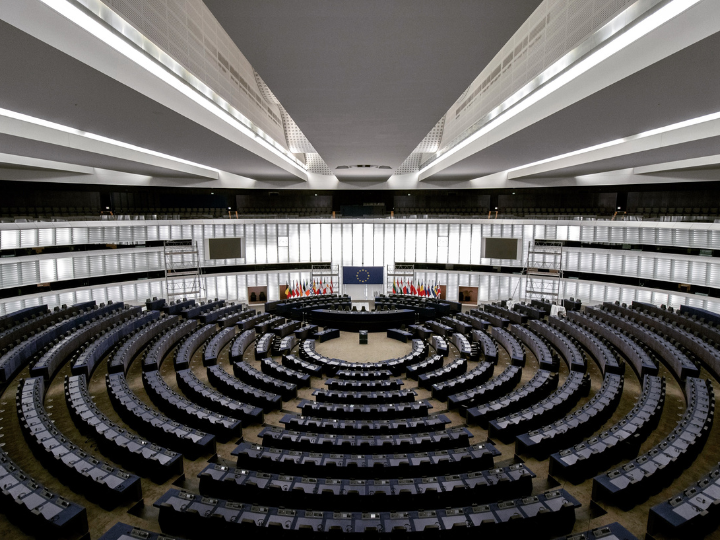by Benjamin Fox
Tightening rules on EU political parties to prevent foreign interference could lead to parties from Ukraine and other pre-accession states being prevented from joining pan-EU political groups and “send a wrong message to the world”, lawmakers have told EURACTIV.
The European Parliament and EU27 ministers remain deadlocked on planned reforms to the statute on European political parties, which currently have members from within and outside the EU.
The Council of Ministers, representing the countries, is determined to prevent parties from outside the EU from being allowed full membership or paying into the Brussels-based parties.
What the Council wants is to enlarge the geographic scope for associated members from non-EU states, a second-tier status that would deprive parties of having party positions, delegates, or voting rights.
Lawmakers in the European Parliament, however, want measures designed to make it easier for European parties to take part in national campaigns and have a more visible role in the European elections.
They have also sought to change the definition of a ‘political party’ into “an association of citizens recognised by the legal order of at least one member state or of a third country”, thereby potentially allowing parties outside the EU to obtain funding.
Meanwhile, the proposal of the European Commission included provisions to allow parties to receive donations from member parties or organisations located in some of the 46 countries belonging to the Council of Europe – a Strasbourg-based organisation promoting democracy and human rights – worth up to 40% of their annual budget.
Member parties from outside the EU would be required to declare that they “observe equivalent values” as their counterparts in the bloc, such as the rule of law.
Insiders say that the driving force among EU governments – led initially by Paris – is to stop interference from malign actors such as Russia and China and ensure that political parties in Brussels cannot receive money from outside the bloc.
Last year, the US State Department found that Russia had spent $300 million in recent years trying to influence politicians and other officials in Europe and elsewhere. The tactics Russia allegedly used included using front organisations to funnel money to preferred causes or politicians, including think tanks in Europe.
However, party officials in Brussels said that supporting parties in non-democratic countries plays a key role in defending democratic values and helps move their country closer to EU membership.
Political party officials in Brussels say that there are already a series of tight conditions regarding payments from parties outside the EU and the right to vote and stand.
There is also a degree of consensus among the European political parties, with the ALDE, Greens, and the Party of European Socialists particularly concerned about the reforms demanded by ministers.
The next trilogue – talks between the Parliament, Council, and the Commission – is now likely to be delayed until the Spanish EU Council presidency in July, EURACTIV understands. That raises the possibility that the regulation could remain unresolved before the current mandate expires next spring.
Lawmakers had initially planned for the new regulation to be in place well in advance of the 2024 European elections.
Sabine Dechamps, deputy secretary general of the liberal ALDE party, told EURACTIV that the proposed changes were “a great concern for ALDE and for European liberals.”
“The change goes against the Europe of tomorrow that EU member states are currently discussing, where they are trying their best to consolidate and bring in the countries applying for EU membership. The change also undermines the EU’s soft power in its neighbourhood,” she added.
“When you welcome the party of [Ukrainian President Volodymyr] Zelenskyy but then tell them that they can’t vote or stand, it sends the wrong message to the world,” said Dechamps.
*first published in: Euractiv.com




 By: N. Peter Kramer
By: N. Peter Kramer
